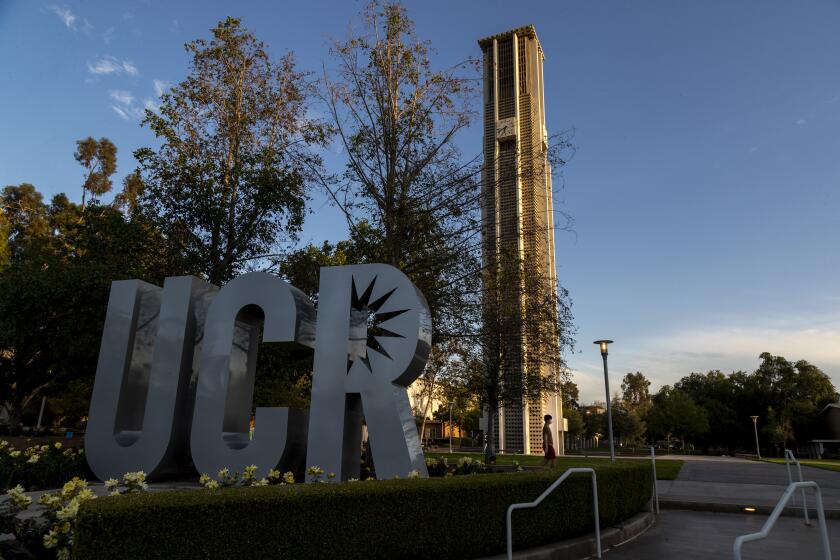L.A. schools could lose $782 million under federal bill

A Republican-led effort to revise a federal education law could slash $782 million for disadvantaged students in Los Angeles Unified over the next six years, federal education officials said Tuesday.
Under the proposed House of Representatives bill, the nation’s largest 33 school districts with high concentrations of Latino and African American students could receive $3 billion less in federal funding than President Obama’s budget provides, U.S. Education Secretary Arne Duncan told reporters in a teleconference Tuesday.
The bill, set for a House vote this week, would mark the first revision since 2001 of a law passed during the civil rights movement half a century ago to expand equal educational opportunities for poor and minority students.
“This proposed bill ... is bad for children and would result in our country losing ground relative to other countries and turning back the clock on 15 years of progress,” Duncan said.
The U.S. Department of Education based the funding estimates on two of the bill’s provisions. One would freeze federal education funding at current levels for the next six years, which would lock in $800 million of cuts made during the economic recession. Another would allow states to change the way special funding for needy students is allocated, which Duncan said would amount to a $700-million reduction to low-income districts and a $470-million increase to more affluent ones.
But U.S. Rep. John Kline (R-Minn.), who wrote the bill and heads the House Education and Workforce Committee, has said that the change in allocating special funding is optional for states; it is unlikely that California would choose to do so. The House bill also increases the special funding, known as Title I, to $14.9 billion from $14.4 billion, according to a committee spokeswoman.
But L.A. Unified officials were not placated.
“I find it horrifying that it’s even a proposal to reduce the funding level for Hispanics and African Americans,” said Megan Reilly, the district’s chief financial officer. “I’m appalled.”
Edgar Zazueta, the district’s chief lobbyist, said the funding provisions are a “deal breaker” that would compel the nation’s second-largest school district to oppose the bill.
Even though the proposed changes in allocating Title I funding are optional for states, Zazueta said, the current state leadership could change and embrace them.
Although he and other California education officials welcome other provisions -- primarily the expansion of local decision-making power, along with the elimination of federal academic performance standards and prescribed sanctions against schools that fail to meet them -- Zazueta said the bill’s potential negative impact on L.A. Unified was too enormous to accept.
“It’s too much to swallow,” he said.
Elsewhere in California, the Department of Education estimated that the bill could reduce funding by $19.4 million for Santa Ana Unified; $31.1 million for San Bernardino City Unified; $32.3 million for Long Beach Unified; and $71.8 million for Fresno Unified.
Twitter: @TeresaWatanabe
More to Read
Start your day right
Sign up for Essential California for news, features and recommendations from the L.A. Times and beyond in your inbox six days a week.
You may occasionally receive promotional content from the Los Angeles Times.






